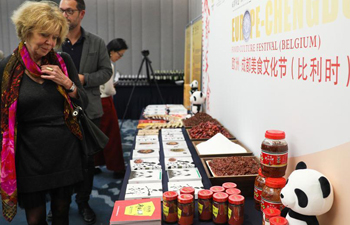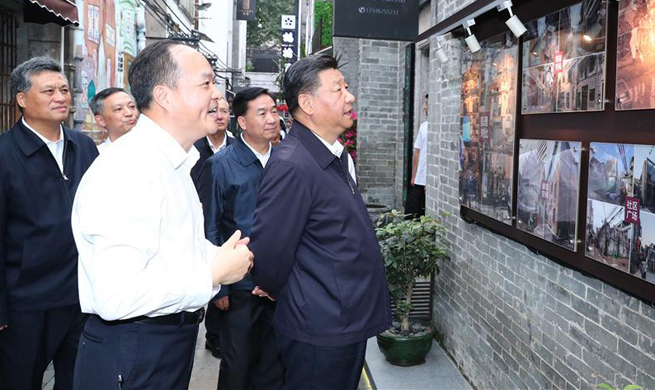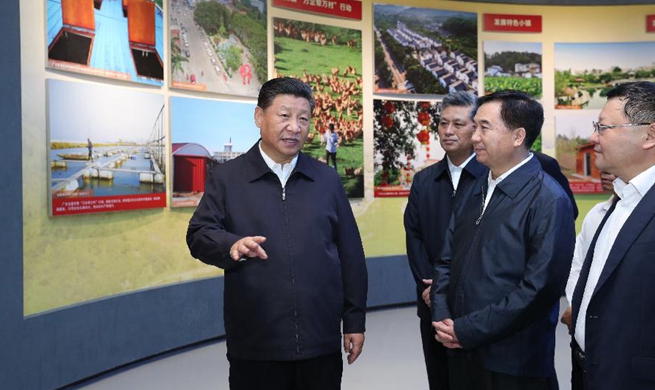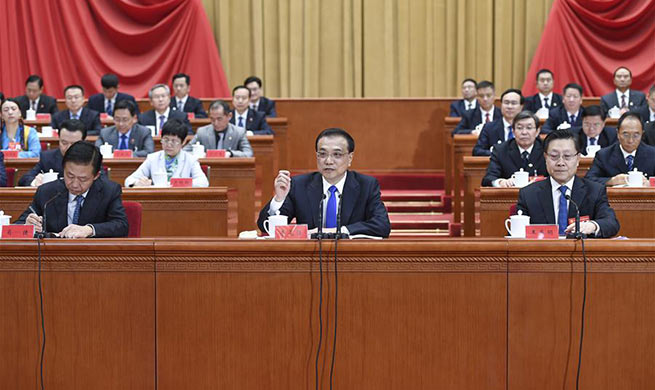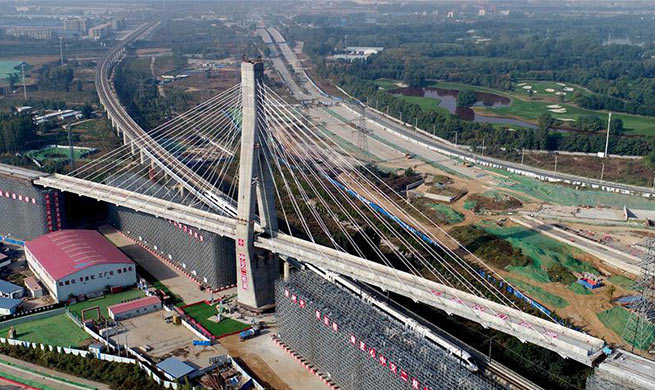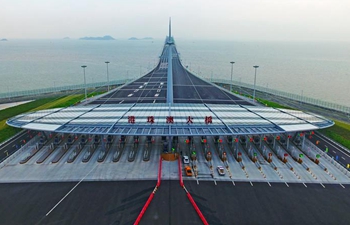BUENOS AIRES, Oct. 24 (Xinhua) -- The first ever China International Import Expo (CIIE) will offer Argentina an unprecedented opportunity to promote its value-added products to a market of roughly 1.4 billion people, an Argentine export promoter told Xinhua.
"What we are most interested in is raising Argentina's visibility by identifying it with wine, not just from Mendoza but also (the provinces) of Salta and San Juan," said Mario Lazzaro, the executive director of the export promotion agency Promendoza of Mendoza Province.
Mendoza is among the Argentine provinces sending the largest delegation to the CIIE to be held in Shanghai on Nov. 5-10. The delegation of the province, which is renowned for its wineries, embraces representatives from more than 30 companies, including 16 wineries.
It prepares to boost business via the CIIE, and Promendoza hopes to better position regional wines in China, where Argentina is currently the eighth-largest supplier of wine.
"The success of Argentinian wine owes a lot to engineering and biotechnology," Lazzaro said.
"It has a significant amount of added value from the biotechnology used to obtain fruits in earlier seasons, taking into account that in Argentina we are in counter seasons to China," said Lazzaro, referring to the seasonal differences between the southern and northern hemispheres.
Speeding up natural agricultural cycles allows Argentina, for example, to time its harvests so goods will reach Chinese shelves in time for major holidays, such as the Spring Festival.
But biotechnology is also applied to "obtain fruits that look better and have a better texture," he added.
Growth in Mendoza's wine exports to China "has been slow," admitted Lazzaro, going from approximately 20 million U.S. dollars in 2015 to a little over 24 million dollars in 2017.
"It's not the pace we are aiming for. We want it to be greater," he said.
The province has also seen a 1.7 million U.S.-dollar increase in its olive oil exports to China, and a 600,000-dollar increase in concentrated grape often used as a sweetener.
Regional bottled water manufacturers are eyeing China's market as well, according to Lazzaro.
"Another value-added product is the element that is scarcest: water. We have water of great purity because it comes from the mountain range," he said.
Recognized as a leading agricultural exporter in South America, Argentina hopes to go beyond grains and other bulk goods by showcasing its wines, beef, bottled waters, dairy items and olive oils at the expo.
In addition to attending the expo, Argentina is taking other steps to boost exports, such as setting up a logistical platform in Shanghai to import and warehouse products so they can be distributed more quickly to buyers.
Argentina's efforts to meet the demands of China's growing consumer market should not end there, said Lazzaro.
China and Argentina can take advantage of "enormous" opportunities by applying biotechnology to food production for export, including fruits such as grapes, cherries, strawberries and peaches.
Meanwhile, Lazzaro admitted that "Being able to compete in such a large market is a major challenge."
Argentina and China, which have raised ties to the level of a comprehensive strategic partnership, agreed in May to expand market access to Argentinian meat, specifically frozen bone-in beef.
China is Argentina's second largest trade partner and leading export destination for beef. In August alone, beef accounted for 37 percent of Argentina's total exports to China, according to official figures.
Promendoza has acknowledged that expanding trade is part of a larger bilateral dynamic of increased ties and integration between the two countries.
"We clearly know that trade, exports and imports are the result of two countries getting to know one another," said Lazzaro. "That's why it is also important to promote tourism, culture, sports (and) the exchange of technicians, engineers, artists and professionals."






